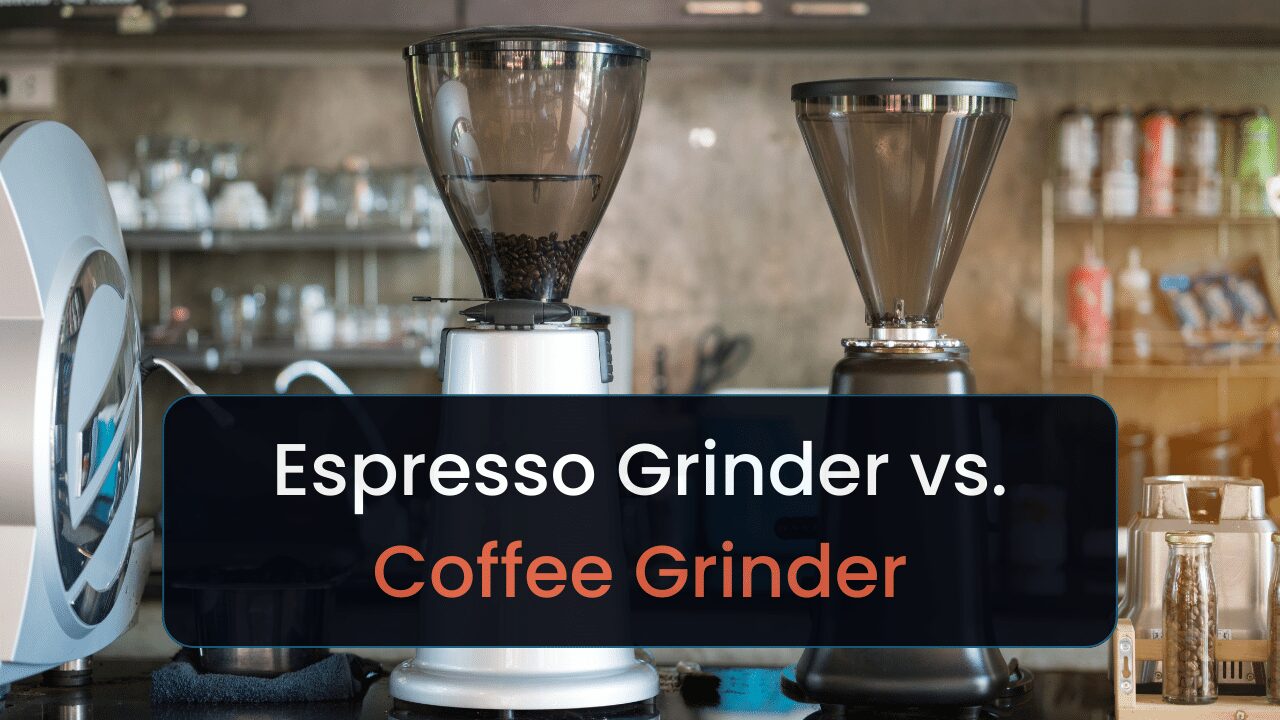I love coffee and working out. However, I often wonder about the safety of drinking coffee before exercising. Is it safe? I’ll explain in this guide.
Here’s what I’ll cover:
Let’s crack the code on caffeine and dominate your workout.
Key Takeaways
- It’s safe to drink coffee before low- and high-intensity workouts.
- Drink 0.5–1 cups of coffee 45–60 minutes before a workout.
- Stick to unsweetened coffee like espresso, cold brew, and nitro cold brew.
- Drinking coffee before a workout can reduce pain, improve performance, and increase metabolism.
- Coffee is FDA-approved, while pre-workout isn’t; making it possibly safer.
Should You Drink Coffee Before or After a Workout?

Drink coffee before a workout, as it can improve physical performance, enhance alertness, and boost energy. The effects of caffeine typically take about 45–60 minutes to kick in. Consuming coffee around this time before a workout is ideal.
Drinking coffee immediately after a workout isn’t recommended. It’s important to prioritize rehydrating the body with water before consuming caffeine.
Is it safe to drink coffee (or caffeine) before a workout?
Is It Safe to Drink Coffee Before a Workout?
Drinking coffee before a workout is considered safe and may offer several benefits. These perks include enhancing physical performance, improving brain function, and increasing alertness, energy levels, and concentration.
However, be mindful of individual caffeine sensitivity and potential digestive discomfort. You should avoid caffeine in general before a workout if you have heart disease, anxiety, or high blood pressure.
Because caffeine, paired with such disorders, could lead to rapid heartbeats, irregular heart beats, and other symptoms.
Let’s spill the beans of the ups and downs of drinking coffee as a pre-workout.
Pros & Cons of Drinking Coffee Before Workout
Pros:
- Performance Booster: Caffeine elevates dopamine and adrenaline, enhancing focus, alertness, and reaction time, leading to improved workout results.
- Endurance Enhancer: By mobilizing fatty acids and delaying fatigue, caffeine can extend your workout duration and push your limits.
- Pain Reducer: Caffeine blocks adenosine receptors in the brain, diminishing pain perception and making tough workouts feel slightly less daunting.
- Recovery Accelerator: Caffeine’s anti-inflammatory properties can shorten recovery time by reducing muscle soreness and promoting glycogen replenishment.
Due to caffeine’s ability to stimulate your body and block adenosine receptors, folks who drink it prior to a workout will notice a huge performance boost. You’ll also have a quicker recovery time, less pain, and more endurance.
I’ll cover quantitative data in a bit.
Cons:
- Sleep Disruption: Consuming coffee too close to bedtime can disrupt sleep, impacting pre-workout energy levels and recovery.
- Gastric Distress: Caffeine can irritate the digestive system, leading to nausea, heartburn, or stomach cramps, especially on an empty stomach.
- Anxiety and Jitters: High caffeine intake can trigger anxiety and nervousness, potentially hindering performance and enjoyment during your workout.
- Addiction and Tolerance: Regular coffee consumption can lead to dependence and tolerance, requiring increasing amounts to achieve the same desired effects.
Since caffeine (coffee) is a stimulant, it could lead to sleep disruption, tummy aches, and anxiety. The amount of caffeine that’ll cause such symptoms will vary by person. Avoid these side effects by starting out with small cups of coffee before your workout.
Caffeine addiction isn’t too bad, though it’s a bit painful (not literally) to reset. I’ve had to reset my caffeine tolerance a lot to make it so coffee has an impact on my focus again.
Start increasing your caffeine sensitivity again by stopping caffeine intake for 24 hours [1]. Depending on how tolerant you are, it could take several weeks to reset your caffeine tolerance.
With that information, how much coffee should you drink before a workout?
Amount of Coffee to Drink Before a Workout
- Moderate-intensity workouts (30–60 minutes): 3–6 mg of caffeine per kilogram of body weight.
- This translates to 1–2 cups of brewed coffee for someone weighing 150 pounds.
- High-intensity workouts (longer than 60 minutes): 1–3 mg of caffeine per kilogram of body weight.
- This would be 0.5–1 cup of brewed coffee for a 150-pound person.
The International Society of Sports Nutrition (ISSN), an evidence-based sports nutrition society, suggests drinking 3–6 mg per kilogram of body mass can increase endurance performance by 22%. That’s around 204–408 mg for a 150 pound (68 kilogram) person.
Folks who are exercising should opt for the lower-end of this spectrum. Otherwise, you have a higher risk of issues that stem from caffeine consumption mixed with exercise. Especially if your body doesn’t tolerate caffeine well.
Drinking less than 3 mg per kilogram of body weight may result in less ergogenic (energy-enhancing) effects.
Here’s how long before a workout you should drink caffeine.
How Long Before a Workout to Drink Coffee
- 45–60 minutes: Best for most people, allows for optimal caffeine absorption and peak effects without jitters.
- 30–45 minutes: Good for individuals with higher caffeine tolerance or shorter workouts.
- 15–30 minutes: Not recommended for caffeine-sensitive individuals or high-intensity workouts.
Drink coffee around 45–60 minutes before a workout to allow caffeine to reach its peak effectiveness. This timing allows for the body to absorb the coffee and for the caffeine to take effect during the workout.
It’s also advised to avoid consuming coffee 6 hours or less before bedtime to prevent sleep disruption.
Why’s it beneficial to drink coffee before a workout at all?
Benefits of Drinking Coffee Before a Workout
Here are all the benefits of drinking coffee before a workout (summarized):
- Boosts focus: Caffeine ignites alertness by boosting dopamine and blocking adenosine receptors, sharpening mental focus for laser-like workouts.
- Enhances blood flow: Expands blood vessels for enhanced nutrient and oxygen delivery to hard-working muscles.
- Improves endurance and performance: Caffeine delays fatigue by increasing fatty acid mobilization and reducing perceived exertion, enabling you to push harder, longer.
- Reduces pain: Caffeine binds to pain receptors, reducing pain perception and allowing for more intense training sessions with less discomfort.
- Speeds up recovery: Caffeine’s anti-inflammatory properties promote muscle repair and glycogen replenishment, speeding up recovery time for faster bounce-back.
I’ll expand upon these points throughout the following sections.
Let’s dive in.
1. Boosts Focus
Drinking caffeine blocks adenosine receptors, which’ll give you these perks [2]:
- Improved reaction time
- More focus
- Increased alertness
And what are adenosine receptors?
Think of your adenosine receptors like little sleep switches in your brain. When adenosine molecules latch onto them, they tell your brain “slow down, time to rest.” Coffee, however, fits into those same switches but does not send the sleep signal.
During exercise, this can be a huge boost to focus, as coffee blocks the drowsiness messages and helps you stay mentally engaged with your workout.
You’re still sweating, and your muscles might ache, but your brain stays sharp and motivated, pushing you towards that extra rep or mile.
2. Enhances Metabolism
Caffeine enhances metabolism by increasing the rate at which the body burns calories and fat [3]. It does this by stimulating the central nervous system, which in turn increases heart rate and breathing.
Caffeine may also create a more favorable intracellular ionic environment in active muscle, which could facilitate force production by each motor unit. This can enhance endurance or resistance to fatigue during exercise, leading to improved performance.
3. Improves Endurance & Performance
A study by the National Center for Biotechnology Information (NCBI) suggests that caffeine had the following impacts on people’s performance [4]:
- Improved running time by 2–3%: It does this by reducing pain and stimulating muscle contraction.
- Increased muscle strength by 8–10%: May regulate hormones, which will increase muscle hypertrophy—increased muscle mass.
- Improved cycling time by 1–3%: The same reason as why it improved running time.
The study also suggests that when drinking caffeine, your muscles will use less stored glycogen. That’ll result in less fatigue during your workouts. Coffee (caffeine) will also increase calcium release, which will result in more muscle contraction and improved strength.
Yes, this study’s focuses on caffeine. However, coffee has caffeine.
4. Reduces Pain
According to several studies, caffeine reduces pain during exercise.
A study conducted by the University of Georgia found that caffeine reduces thigh muscle pain during cycling [5]. Another study found that caffeine can produce large reductions in pain resulting from eccentric exercise-induced, delayed-onset muscle [6].
Such a reduction in pain could help you push through your workout to get in extra reps.
5. Speeds up Recovery
Folks participating in a study had a 153% increase in muscle glycogen resynthesis during a 4-hour recovery period after drinking coffee [7]. Don’t know what that means? Think of resynthesis as a supercharged gas station for your muscles.
It reduces fatigue and muscle soreness while repairing your muscles faster. Because good glycogen levels help your body adapt to the stress of exercise.
The people in this study also drank sweetened milk with their coffee. I recommend experimenting with this. And if you’re lactose intolerant, try nut milk or heavy whipping cream.
The milk may help with muscle recovery because your body will release more insulin in response, which will help boost glycogen resynthesis.
It’ll also lead to elevated blood glucose levels post-pump. That’ll provide energy for muscle recovery.
All these perks sound nice, but you may run into some issues when drinking coffee as a pre-workout. Let’s see what they are.
Potential Risks of Drinking Coffee Before a Workout
It’s important to be aware of potential risks before chugging that pre-workout Joe. Here are some downsides to consider:
- Jitters and Anxiety: Caffeine is a stimulant, and for some, it can cause nervousness, restlessness, and increased anxiety.
- Digestive Issues: Coffee can stimulate the digestive system, leading to stomach upset, nausea, and diarrhea.
- This is especially likely on an empty stomach or for individuals with sensitive digestive systems.
- Dehydration: Caffeine increases urine output, which could lead to dehydration if you don’t adequately replenish fluids.
- Insomnia: Late-afternoon or evening coffee can disrupt sleep patterns, making it harder to get a good night’s rest.
- Increased Blood Pressure and Heart Rate: Caffeine can elevate blood pressure and heart rate, especially for individuals with underlying cardiovascular conditions.
- Dependence: Regular coffee intake can lead to dependence, where your body requires caffeine to function normally.
- Individual Sensitivity: Some people are highly sensitive and experience minor side effects at low doses.
Listen to your body and be mindful of potential negative side effects. It’s also advisable to avoid consuming coffee 6 hours or less before bedtime to prevent sleep disruption.
If you experience any negative effects, consider alternative pre-workout strategies like hydrating with water, eating a light snack, or incorporating beetroot juice or green tea into your routine.
I suggest beetroot because studies suggest it improves performance by more than 0.8% [8]. And green tea because it provides caffeine, but not as much as coffee. Meanwhile, it could reduce fatigue because you’re optimizing fatty acid metabolism [9].
Still sticking to coffee? Alright. Let’s figure out what type of coffee you should drink.
Best Type of Coffee to Drink Before a Workout
The best type of coffee to drink before a workout is black coffee, espresso, or cold brew, as they are low in sugar and dairy content.
Let’s dive further into my suggestions:
- Black coffee or espresso: These options provide a good source of caffeine without unnecessary sugar or dairy, which can be harder to digest during a workout.
- Cold brew and nitro cold brew: A smoother, less acidic beverage.
- Unsweetened coffee with a splash of milk or plant-based milk: If you prefer a creamier taste, add a small amount of milk or plant-based milk to your coffee.
- Coffee with 1–2 teaspoons of sweetener: If you need a sweeter taste, use a small amount of sugar or a natural sweetener like honey or agave.
Everyone’s tolerances to sweeteners and creamer will vary. If you can’t live without adding ingredients to your coffee, experiment with small amounts. Do this until you find something that satisfies your taste buds and doesn’t destroy your body during exercise.
Do you already drink pre-workout? You’ll want to change your mind after reading this next section.
Pre-Workout Supplements vs. Coffee
| Pre-Workout | Black Coffee (8-oz cup) | |
| Avg. Price Per Serving | $0.50–$2.00 | $0.10–$1.50 |
| Caffeine | 150–300 mg | 95–180 mg |
| Other Ingredients | Creatine, BCAAs, amino acids, adaptogens, and sweeteners | None |
On average, a cup of coffee will cost up to 5 times less than a serving of pre-workout. That’s likely because pre-workout is a dietary supplement and has a higher “value” due to perceived health benefits.
I’ll dive further into other big differences between these 2 pre-workout drinks throughout the following sections.
Let’s go.
1. Caffeine
Some coffee drinks—like Red Eye—can have up to 300 mg of caffeine due to having multiple espresso shots mixed with black coffee. However, most coffee beverages will have caffeine on the lower(ish)-end. When compared to pre-workout.
Pre-workout typically has way more caffeine, which could give people more of a boost in their workout. However, such high numbers may increase your caffeine tolerance and the likelihood of side effects.
There’s also other ingredients in pre-workout that can interact with your body. Check them out.
2. Other Ingredients
Coffee doesn’t have any other ingredients, unless you add sweetener. Thus, it doesn’t provide “crazy” health benefits.
Many pre-workout supplements will include ingredients like:
- BCAAs (Branched-Chain Amino Acids): These amino acids help fuel the body during workouts, supporting muscle endurance and recovery.
- Beetroot or Pomegranate Extracts: Increases blood flow and helps reduce fat, potentially enhancing exercise performance.
- Beta-Alanine: It helps in buffering fatigue, allowing for longer and more effective training sessions.
- Creatine: Supports all-out power during exercise, aiding in short, high-intensity activities like weightlifting or sprinting.
- L-Citrulline: It aids in the production of nitric oxide, which helps relax blood vessels and improve blood flow, potentially leading to better exercise performance.
Pre-workout manufacturers may (allegedly) mislabel their products, though. Thus, you may not get the amount of these ingredients as the manufacturer claims. That’s because pre-workout is considered a supplement, which isn’t regulated by the U.S. FDA.
I’ll emphasize more on this point in the next section.
3. FDA Regulation
All types of coffee require U.S. Food and Drug Administration (FDA) food facility registration [10]. It also requires coffee manufacturers to ensure all their products are properly labeled and safe.
However, pre-workout is considered a dietary supplement and is not regulated by the FDA [11].
Because of this, dietary supplements, including pre-workout, may allegedly have misleading and inaccurate product labels. Such misinformation could include inaccurate amounts of “X” ingredients included in the supplement.
You may find “FDA-approved” pre-workout. However, that allegedly means that the FDA assessed their supplement and didn’t force them to take it off the shelves.
Thus, I’d practice caution with buying pre-workout if I were you.
Want to know what is FDA-approved? Food. Let’s see what food would do well with a workout.
Best Food to Pair With Coffee Before a Workout
Here are foods that I recommend pairing with coffee before a workout:
- Banana: Easily digestible carbs for energy, potassium for muscle function, and fiber to keep you feeling full.
- Greek yogurt with berries: Protein from yogurt helps repair muscle tissue, while berries provide antioxidants and a touch of sweetness.
- Choose low-fat or fat-free yogurt for easier digestion.
- Oatmeal with nuts and seeds: This warm and filling option delivers sustained energy from complex carbs and healthy fats.
- Nuts and seeds add protein, fiber, and essential nutrients.
- Whole-wheat toast with avocado: Whole-wheat bread provides slow-burning carbs, while avocado’s healthy fats keep you feeling satisfied.
- Slice of toast with peanut butter: Glucose for immediate energy production and glycogen replenishment and amino acids (from peanut butter) for muscle tissue repair.
- Protein shake with collagen peptides: Optimizes energy, muscle protein synthesis, and cognitive performance.
- Fruits: Citrus fruits like oranges, lemons, and limes are lower in sugar alcohols and can be a suitable pre-workout snack.
Aim to consume these foods about 45 to 60 minutes before your workout. Doing so allows enough time for digestion and absorption of nutrients. Doing so also prevents any discomfort during exercise.
Eating immediately before a workout can cause competing demands on the body, leading to suboptimal performance, and may cause gastrointestinal discomfort.
Why are these foods good to pair with caffeine?
Carbohydrates raise blood sugar, and in response, the pancreas releases insulin to lower it. This insulin release can blunt the initial stimulating effect of caffeine, leading to a “crash” after the sugar rush fades.
However, consuming carbs with caffeine can also stabilize blood sugar and prevent the crash. This is because the sustained energy from carbs counteracts the dip caused by the caffeine-insulin interaction.
The vitamin C and citric acid from some fruits rich in these (citrus fruits, strawberries) might speed up caffeine absorption by increasing stomach acidity. This could lead to a quicker but shorter-lived energy boost.
Some fruits (e.g., berries and pomegranates) are rich in antioxidants. These might improve caffeine metabolism by scavenging free radicals, potentially reducing caffeine jitters and anxiety.
For instance, anthocyanins found in blueberries may reduce inflammation and oxidative stress [12]. All factors which can contribute to caffeine anxiety.
Hopefully these tips helped. Now, go pump iron.
Summary: Eating easily digestible cards like bananas or peanut butter on toast will help with immediate energy boosts and improve glycogen replenishment.
FAQs for Drinking Coffee Before Workouts
Before you brew that pre-workout cup, quench your caffeine curiosity by checking out our FAQs on coffee and exercise.
Can I Drink Coffee Before Going to the Gym in the Evening?
Yes, you can drink coffee before going to the gym in the evening. However, it’s best to avoid drinking coffee 6 hours or less before going to bed, as it can disrupt your sleep [13].
Conclusion
It’s safe to drink half a cup to 2 cups of unsweetened coffee 45–60 minutes before a workout. Doing so may help improve performance, reduce pain, and speed up recovery.
Don’t like the drinks that I recommended earlier? Check out a massive list of coffee drinks you could try.






